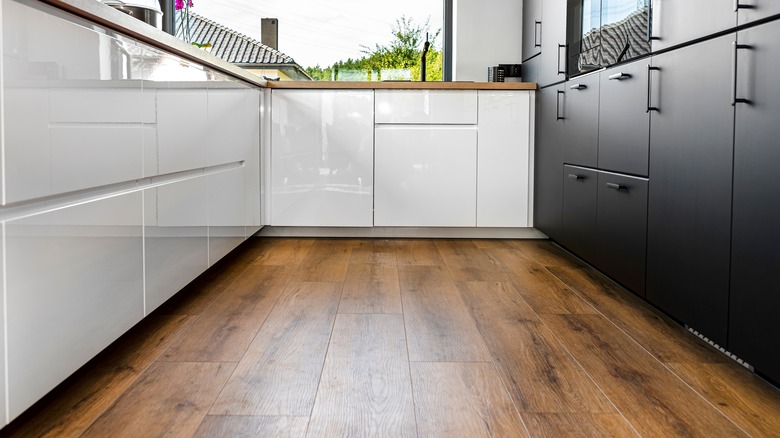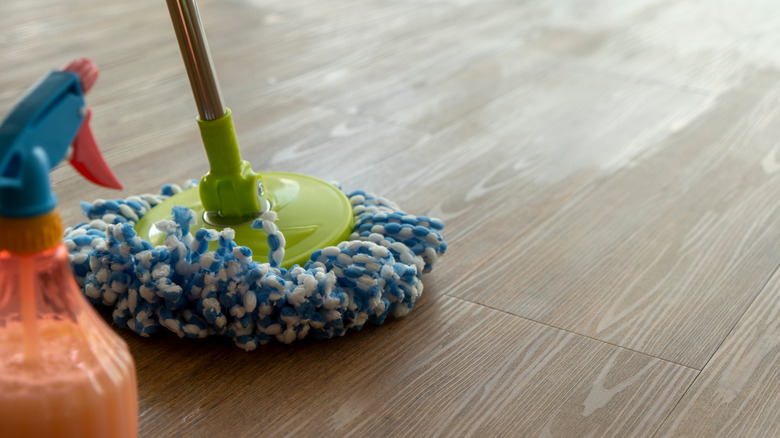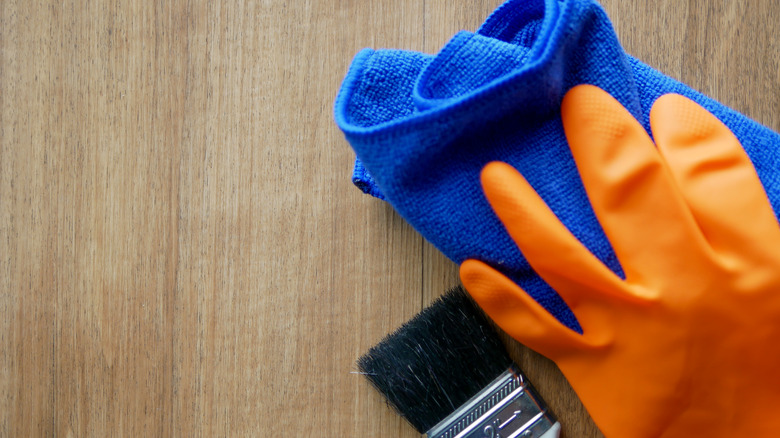Mistakes That Are Making Your Vinyl Floors Slippery
Do your children seem to think the living room floor is the best place to slide around in their socks? This could be because your vinyl floors are too slippery, which can pose a safety hazard. Some floor finishes are more slippery than others, but if you're not in the market to replace your floors with safer ones, consider what you could do to improve your existing finish. Often, this slipperiness is either caused by oil- or wax-based cleaning agents or a build-up of material like soap, moisture, or floor polish.
The good news is that there are a few solutions to help minimize this hazard, none of which require ripping out and replacing your vinyl floors. As long as they're in good overall condition and not necessarily a tripping hazard, properly maintaining them could help strip away any surface contaminants that make them risky. Before cleaning or using various detergents on your floor, check out the manufacturer's recommendations. Some products have limitations on what you can use to clean them, and not doing so could void any warranty you have in place. The mistakes you're making with your vinyl floor are worth tackling now — doing so could help preserve your floors' lifespan and ensure that they're not just an accident waiting to happen.
How to properly clean vinyl floors
Typically, cleaning vinyl floors with oil- or wax-based products can make their surfaces more prone to damage. You shouldn't have to wax these surfaces in any way, as they already have protective coatings on the surface to help maintain their beauty, durability, and waterproof features. You don't have to add to that unless the manufacturer instructs you to.
You also may be using a type of floor polish or soap that can adhere to the floor's surface, increasing the risk of slipping. For example, some soaps can cause a build-up of residue if you don't fully rinse them away or use too much of the detergent while cleaning the floor. That residue creates a slippery film across the floor that increases risks.
Conversely, infrequent cleaning can also be a culprit. You may clean your vinyl floors often, but it may not be enough if your home has an excessive amount of dust. This is especially a concern if you keep your windows open and outside dust or pollen is getting into the space. Another culprit is grease, a common problem in areas like the kitchen, where cooking can create spattering that adds a thin film of grease to the floor's surface.
Remove excess buildup and protect the floor
Once residue, grease, dust, or other materials build up on your vinyl floor, just mopping them away may not be enough. You can start with a mop and a bit of mild dish soap, using hot water when possible. If that doesn't remove everything, move to a degreasing agent, which is formulated to strip away more of the built-up material on the surface. This can be particularly helpful in the kitchen and at any entrance near the garage (if you have one). If the manufacturer requires (or simply recommends) the use of polish, purchase the kind specifically made for vinyl floors. Using just any type of polish isn't ideal since those containing oils could add to your floors' slipperiness.
You can also add anti-slip coatings to vinyl floors to help minimize this risk. These products are designed to add slip resistance to your floors but don't require any major renovations. If the floors in your home are slippery because they're often wet, like in the laundry room or bathrooms (or just because you get a lot of rain), an anti-slip coating — which you can likely find in either a wax-like product or a spray — may prove beneficial.


